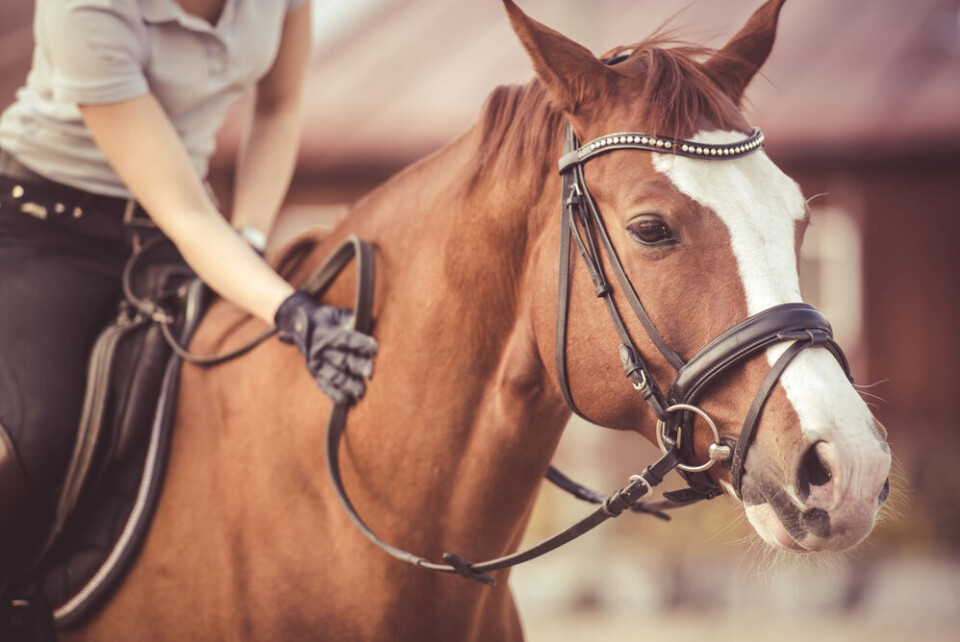-
French crisps brand gains global attention after Dua Lipa post
Singer posted photo of her shopping basket and the only food items were Brets crisps in braised chicken, honey mustard, and ‘Fromage du Jura’ flavours
-
Why supermarkets are urging shoppers to buy French leeks
Try our French classic leek vinaigrette recipe
-
New bill targets skiers under influence of alcohol or drugs
There are not currently any specific rules on skiing while under the influence
Riding centres in France struggle to find horses
The lack of horses and breeders is particularly affecting riding and horse centres in Dordogne

Riding and horse centres in France are reporting a lack of horses and ponies, causing a lack of availability and rising prices, with expected knock-on effects on school classes and riding for leisure.
In 2018, there was an average of one donkey, pony or horse in France for every 57 people. Although around 1.2million equines are still owned by around 140,000 owners, the figure has been steadily decreasing in recent years.
The effects are being felt in Dordogne (Nouvelle-Aquitaine) particularly, where riding centres are especially numerous. The shortage has been blamed on various factors, reports France 3.
Read more: France’s love of horses knows no bounds
Ageing populations
The number of horses over 20 years old is increasing. The majority of these horses are used for leisure (68%), followed by racing or breeding (25%), with a small proportion being kept as pets, or for agricultural work.
As for the horse meat industry, it is disappearing slowly, both in terms of consumption and production (80% of the horse meat still consumed in France is imported).
High prices
Overall, the French livestock population is decreasing. It is becoming increasingly difficult for riding schools looking for trained, "ready to use" adult animals suitable for the general public, at reasonable prices.
Solène Deroeck, Club Hippique Poney-Club de Bergerac, said: “At the moment it's very difficult to find ponies at reasonable prices for clubs. Everyone is looking for club horses, everyone is looking for club ponies, everyone is looking everywhere.”
François Brachet, breeder, importer and horse dealer in St Maime-de-Péreyrol, confirms this. His Argentinean saddle horses, which he used to sell for €3,000, have seen their price double or even triple in just a few years.
This is a general trend in Europe, and is particularly marked in France.
Fewer breeders
France has seen a gradual disappearance in breeders and stud farms in recent years. The national stud farm programme, which was created as far back as the 1660s to prevent reliance on foreign horse purchases, finally ended in 2014.
Stud breeding changes
National stud breeding farms in France used to be subsidised by state betting system PMU, and helped to maintain high-quality horses and make stallion breeding affordable for French breeders. However, like many other public institutions, from the early 1980s, the stud farms began to bear the brunt of mergers, public funding changes, changes in status and budget cuts. This finally led to their definitive disappearance eight years ago, partly resulting in the current shortage.
Smaller breeders ‘put off’ by regulation
According to breeder Mr Brachet, increasingly strict French regulations on the keeping and breeding of horses have also threatened the sector.
Regulations on the identification and tracking of horses now make the process more restrictive and costly, which can make it much more difficult and expensive for private individuals or small occasional breeders, who used to carry out this activity part-time, to continue their opeations.
It comes following a difficult few years for horse owners and riding school operators, after a mysterious set of gruesome killings hit the sector in 2020.
Related articles
More than 30 horse mutilation cases reported in France
New enquiry opens into horse mutilation in France
World first in horse therapy: France's Kinesia Centre opens
What must you consider to bring a horse in to France?
























